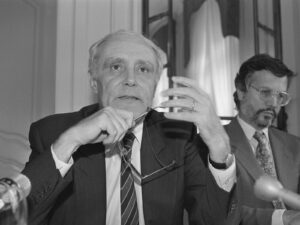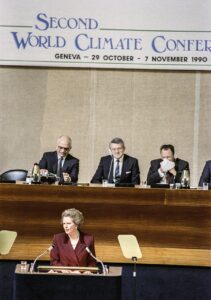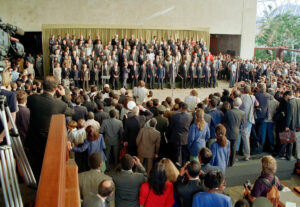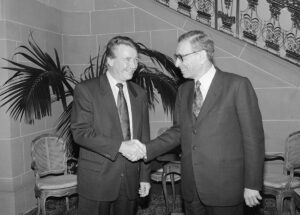
Switzerland’s high hopes at the 1992 Earth Summit
Federal Councillor Flavio Cotti travelled to the 1992 Earth Summit in Rio with high hopes, but he failed to return with much in terms of tangible results.
Short documentary about the 1992 Rio Earth Summit. YouTube



Joint research

This text is the product of a collaboration between the Swiss National Museum (SNM) and the Forschungsstelle Diplomatische Dokumente der Schweiz (Dodis), the Diplomatic Documents of Switzerland research centre. The SNM is researching images relating to Switzerland’s foreign policy in the archives of the agency Actualités Suisses Lausanne (ASL), and Dodis puts these photographs in context using the official source material. The files on the year 1992 were published on the internet database Dodis in January 2023. The documents cited in the text are available online.



